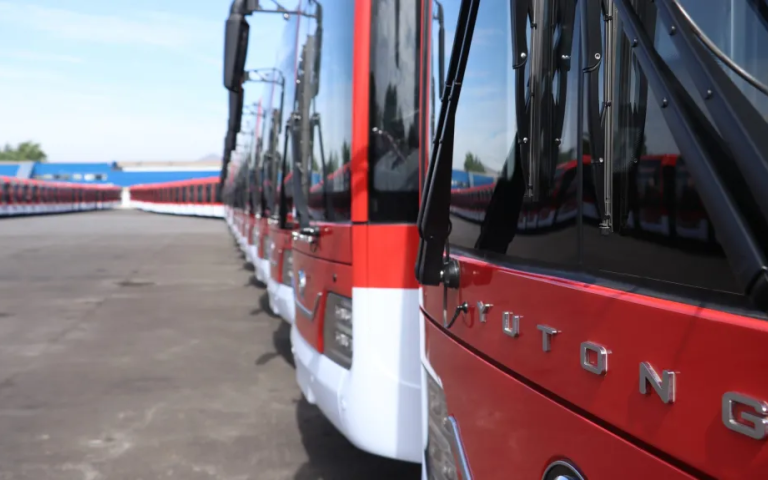The new vehicles were produced by the Chinese company Yutong and have protection against water and dust in the engine and electrical box, 360° cameras to avoid blind spots, and proximity sensors to detect pedestrians and cars. In addition, there is automatic speed limitation programming, controlled remotely, in areas with a greater number of pedestrians. Air conditioning, Wi-Fi and USB sockets are also part of the package.
Thus, according to the local Ministry of Transportation, the fleet in the Chilean capital reaches 2,480 buses of this type. The figure represents 37% of the capital's total urban bus fleet, which has 6,500 units.

These new buses will replace the orange diesel buses that operate in the South Zone in regions such as San Bernardo, El Bosque, La Pintana and La Cisterna. In addition to the 2,480 electric buses that are already in operation, 1,200 units will be installed.
The tender for the purchase of these buses has already been opened and should conclude in the first half of the year. As a result, the total number of electric buses should represent around 50% of the capital's fleet.
The Chilean model, which has the participation of ENEL-X, the same company that participated in the fleet electrification project in the capital of São Paulo, took into account battery charging infrastructure in garages and increased power in the distribution network. And it is precisely the lack of infrastructure that calls into question the achievement of the goal of 2,600 electric buses in circulation in the city of São Paulo until the end of 2024.

According to SPTrans (São Paulo Transport) and ENEL, no works were carried out in the garages or the electrical grid to account for the simultaneous charging of the batteries. A study by the ANTP (National Association of Public Transport) shows that, even in the early hours of the morning, if 50 electric buses charge their batteries at the same time, the power will be cut off in the neighborhoods and there will be no electricity for everyone.
Mayor Ricardo Nunes said on September 18, 2023, during the delivery of 50 new generation electric buses, that by the end of 2023 there would be 600 vehicles of this type in the city. But in the middle of January 2024, only 69 are in operation, these 50 are new and another 19 that have already been in operation for four years.
Even with this situation of lack of infrastructure, the city council maintains the goal of 2,600 electric buses by the end of 2024, that is, 20% of the fleet. This goal was already 40%. There are already almost 200 buses produced, still in the hands of the manufacturers, but due to this lack of infrastructure they cannot circulate.

